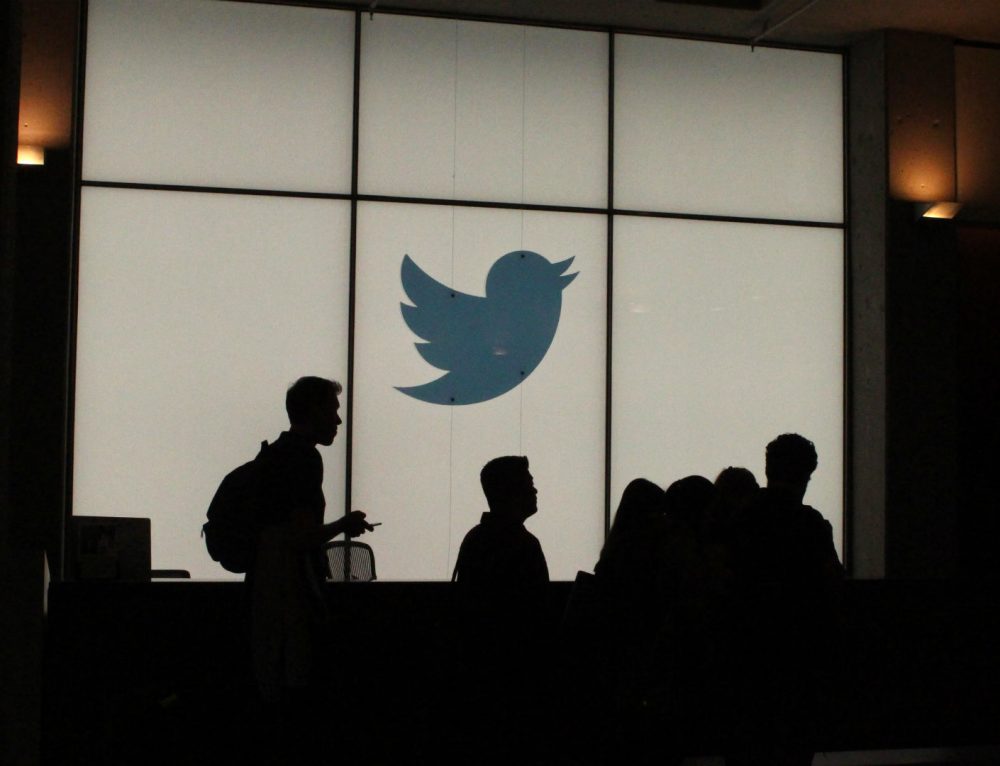Lo que alguna vez fue una tecnología liberadora se ha convertido en un conducto para la vigilancia y la manipulación electoral.
Escrito por Adrian Shahbaz y Allie Funk
La libertad de Internet está cada vez más amenazada por las herramientas y tácticas del autoritarismo digital, que se han extendido rápidamente por todo el mundo. Los regímenes represivos, los gobernantes electos con ambiciones autoritarias y los operativos partidistas sin escrúpulos han explotado los espacios no regulados de las plataformas de redes sociales, convirtiéndolos en instrumentos de distorsión política y control social. Si bien las redes sociales a veces han servido como un campo de juego nivelado para la discusión cívica, ahora se inclinan peligrosamente hacia el antiliberalismo, exponiendo a los ciudadanos a una represión sin precedentes de sus libertades fundamentales. Además, una sorprendente variedad de gobiernos están implementando herramientas avanzadas para identificar y monitorear a los usuarios en una escala inmensa. Como resultado de estas tendencias, la libertad global de Internet disminuyó por noveno año consecutivo en 2019.
Las redes sociales permiten que la gente común, los grupos cívicos y los periodistas lleguen a una gran audiencia a un costo mínimo o nulo, pero también han proporcionado una plataforma extremadamente útil y económica para las operaciones de influencia maligna de actores nacionales y extranjeros por igual. Los líderes políticos emplearon a personas para dar forma subrepticia a las opiniones en línea en 38 de los 65 países cubiertos en este informe, un nuevo récord. En muchos países, el auge del populismo y el extremismo de extrema derecha ha coincidido con el crecimiento de turbas en línea hiperpartidistas que incluyen tanto usuarios auténticos como cuentas fraudulentas o automatizadas. Construyen grandes audiencias en torno a intereses similares, enlazan sus mensajes políticos con contenido falso o incendiario y coordinan su difusión en múltiples plataformas.
Cross-border influence operations, which first drew widespread attention as a result of Russian interference in the 2016 US presidential contest, are also an increasingly common problem. Authorities in China, Iran, Saudi Arabia, and a growing list of other countries have expanded their efforts to manipulate the online environment and influence foreign political outcomes over the past year. Malicious actors are no doubt emboldened by the failure of democratic states to update transparency and financing rules that are vital to free and fair elections, and apply them effectively to the online sphere.
In addition to facilitating the dissemination of propaganda and disinformation during election periods, social media platforms have enabled the collection and analysis of vast amounts of data on entire populations. Sophisticated mass surveillance that was once feasible only for the world’s leading intelligence agencies is now affordable for a much broader range of states. Freedom House research indicates that more repressive governments are acquiring social media surveillance tools that employ artificial intelligence to identify perceived threats and silence undesirable expression. Even in democracies, such mass monitoring is spreading across government agencies and being used for new purposes without adequate safeguards. The result is a sharp global increase in the abuse of civil liberties and shrinking online space for civic activism. Of the 65 countries assessed in this report, a record 47 featured arrests of users for political, social, or religious speech.
While authoritarian powers like China and Russia have played an enormous role in dimming the prospects for technology to deliver greater human rights, the world’s leading social media platforms are based in the United States, and their exploitation by antidemocratic forces is in large part a product of American neglect. Whether due to naïveté about the internet’s role in democracy promotion or policymakers’ laissez-faire attitude toward Silicon Valley, we now face a stark reality: the future of internet freedom rests on our ability to fix social media. This report offers a series of recommendations to that end, but whatever the specific solutions, the United States must take the lead in rallying defenders of the open internet to fairly regulate a technology that has become a necessity for our commerce, politics, and personal lives.
There is no more time to waste. Emerging technologies such as advanced biometrics, artificial intelligence, and fifth-generation mobile networks will provide new opportunities for human development, but they will also undoubtedly present a new array of human rights challenges. Strong protections for democratic freedoms are necessary to ensure that the internet does not become a Trojan horse for tyranny and oppression. The future of privacy, free expression, and democratic governance rests on the decisions we make today.
Tracking the global decline
Freedom on the Net is a comprehensive study of internet freedom in 65 countries around the globe, covering 87 percent of the world’s internet users. It tracks improvements and declines in internet freedom conditions each year. The countries included in the study have been selected to represent diverse geographical regions and regime types. In-depth reports on each country can be found at freedomonthenet.org.
More than 70 analysts contributed to this year’s edition, using a 21-question research methodology that addresses internet access, freedom of expression, and privacy issues. In addition to ranking countries by their internet freedom score, the project offers a unique opportunity to identify global trends related to the impact of information and communication technologies on democracy. Country-specific data underpinning this year’s trends is available online. This report, the ninth in its series, focuses on developments that occurred between June 2018 and May 2019.
Of the 65 countries assessed, 33 have been on an overall decline since June 2018, compared with 16 that registered net improvements. The biggest score declines took place in Sudan and Kazakhstan followed by Brazil, Bangladesh, and Zimbabwe.
In Sudan, nationwide protests sparked by devastating economic hardship led to the ouster of President Omar al-Bashir after three decades in power. Authorities blocked social media platforms on several occasions during the crisis, including a two-month outage, in a desperate and ultimately ineffective attempt to control information flows. The suspension of the constitution and the declaration of a state of emergency further undermined free expression in the country. Harassment and violence against journalists, activists, and ordinary users escalated, generating multiple allegations of torture and other abuse.
In Kazakhstan, the unexpected resignation of longtime president Nursultan Nazarbayev—and the sham vote that confirmed his chosen successor in office—brought simmering domestic discontent to a boil. The government temporarily disrupted internet connectivity, blocked over a dozen local and international news websites, and restricted access to social media platforms in a bid to silence activists and curb digital mobilization. Also contributing to the country’s internet freedom decline were the government’s efforts to monopolize the mobile market and implement real-time electronic surveillance.
The victory of Jair Bolsonaro in Brazil’s October 2018 presidential election proved a watershed moment for digital election interference in the country. Unidentified actors mounted cyberattacks against journalists, government entities, and politically engaged users, even as social media manipulation reached new heights. Supporters of Bolsonaro and his far-right “Brazil over Everything, God above Everyone” coalition spread homophobic rumors, misleading news, and doctored images on YouTube and WhatsApp. Once in office, Bolsonaro hired communications consultants credited with spearheading the sophisticated disinformation campaign.
In Bangladesh, citizens organized mass protests calling for better road safety and other reforms, and a general election was marred by irregularities and violence. To maintain control over the population and limit the spread of unfavorable information, the government resorted to blocking independent news websites, restricting mobile networks, and arresting journalists and ordinary users alike.
Deteriorating economic conditions in Zimbabwe made the internet less affordable. As civil unrest spread throughout the country, triggering a violent crackdown by security forces, authorities restricted connectivity and blocked social media platforms.
Only 16 countries earned improvements in their internet freedom scores, and most gains were marginal. Ethiopia recorded the biggest improvement this year. The April 2018 appointment of Prime Minister Abiy Ahmed led to an ambitious reform agenda that loosened restrictions on the internet. Abiy’s government unblocked 260 websites, including many known to report on critical political issues. Authorities also lifted a state of emergency imposed by the previous government, which eased legal restrictions on free expression, and reduced the number of people imprisoned for online activity. Although the government continued to impose network shutdowns, they were temporary and localized, unlike the nationwide shutdowns that had occurred in the past.
Other countries also benefited from an opening of the online environment following political transitions. A new coalition government in Malaysia made good on some of its democratic promises after winning May 2018 elections and ending the six-decade reign of the incumbent coalition. Local and international websites that were critical of the previous government were unblocked, while disinformation and the impact of paid commentators known as “cybertroopers” began to abate. However, these positive developments were threatened by a rise in harassment, notably against LGBT+ users and an independent news website, and by the 10-year prison term imposed on a user for Facebook comments that were deemed insulting to Islam and the prophet Muhammad.
In Armenia, positive changes unleashed by the 2018 Velvet Revolution continued, with reformist prime minister Nikol Pashinyan presiding over a reduction in restrictions on content and violations of users’ rights. In particular, violence against online journalists declined, and the digital news media enjoyed greater freedom from economic and political pressures.












